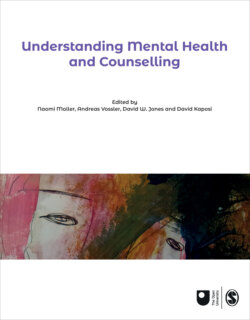Читать книгу Understanding Mental Health and Counselling - Группа авторов - Страница 26
На сайте Литреса книга снята с продажи.
3 Nothing about us without us: research practice and the service-user movement
Оглавление‘Nothing about us without us’ is a phrase that originated within the disability rights movement. The phrase grew in popularity after it was used in an influential book by James Charlton (Charlton, 2000). The service-user movement has always drawn on the exceptional activism and thinking initiated by disability campaigners. Although many of us with mental health difficulties do not identify with a disability, we recognise the benefits of using a human rights-based approach in our activism. The phrase ‘nothing about us without us’ has been used by mental health survivors to highlight that many decisions and discussions happened about ‘us’, without any consultation or attempt at collaboration. In 2017, National Survivor User Network (NSUN) members created a manifesto that intended to ‘pressure mental health services to make the principal of “nothing about us without us” a reality at all levels, through meaningful involvement in decisions about our own individual care and genuine co-production to develop services’ (NSUN, 2017, p. 3).
Arguably, obtaining the right to share our experiences and opinions with policymakers, researchers and service providers has been one of the greatest achievements of the service-user movement. Service-user involvement is now, at a policy level, required throughout all mental health service developments and research. Most mental health research will not receive funding unless researchers provide a clear strategy for mental health patient engagement. However, despite this policy requirement, collaboration is ‘patchy and slow and often concentrated at the lowest levels of involvement’ (Ocloo and Matthews, 2016). The patient involvement that does happen has brought with it an array of difficulties and criticisms, to which this chapter now turns.
